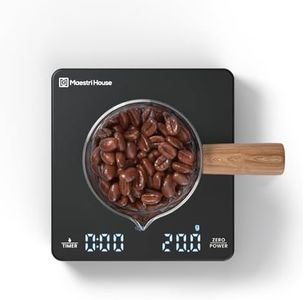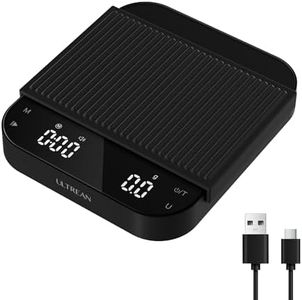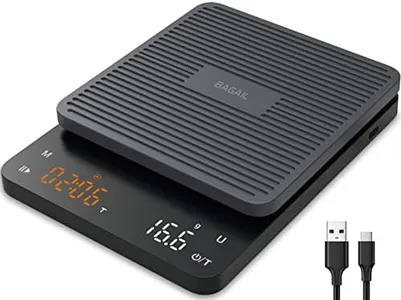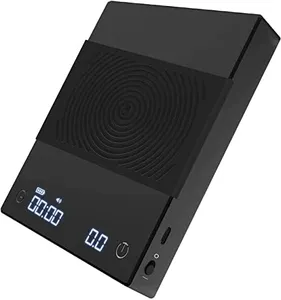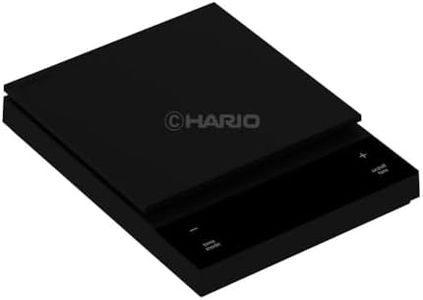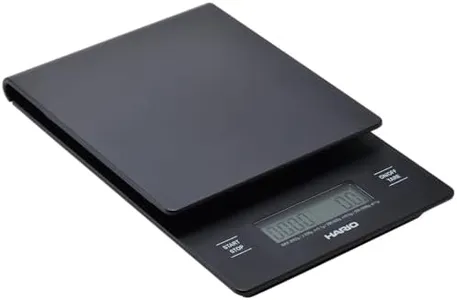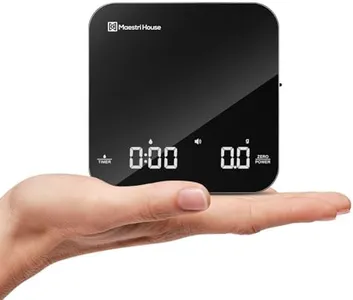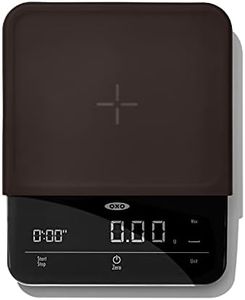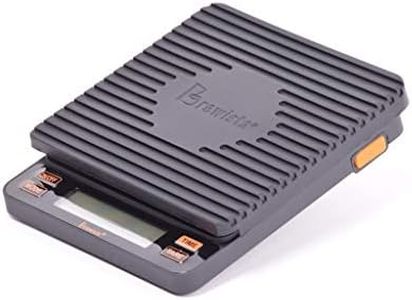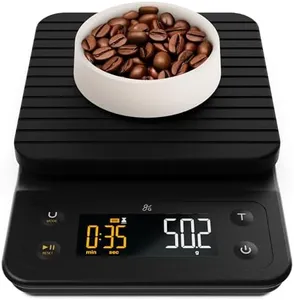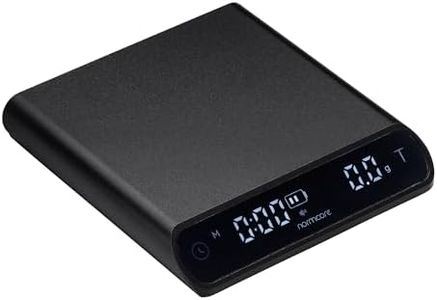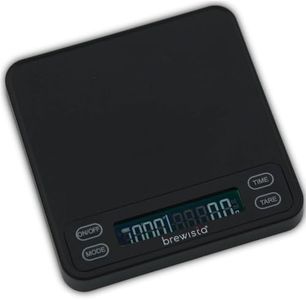We Use CookiesWe use cookies to enhance the security, performance,
functionality and for analytical and promotional activities. By continuing to browse this site you
are agreeing to our privacy policy
10 Best Coffee Scales
From leading brands and best sellers available on the web.By clicking on a link to a third party's website, log data is shared with that third party.
Buying Guide for the Best Coffee Scales
Choosing the right coffee scale can make a big difference in your coffee-making process, particularly if you enjoy precision and consistency. A coffee scale helps you measure your coffee grounds and water accurately, which leads to better-tasting coffee and replicable results. To pick the right one for you, it's important to understand the key features that influence usability and effectiveness, so you can match them to your brewing habits and preferences.Accuracy and PrecisionAccuracy in a coffee scale refers to how closely the measured weight matches the real weight, while precision is about how finely the scale can measure small changes in weight. This is important because brewing coffee often requires measuring small amounts (like a few grams), and consistent results depend on this. Scales with precision down to 0.1 grams are ideal for most coffee methods, while simpler scales may offer only 1-gram increments. If you’re particular about your brew or use espresso, go for higher precision, but if you brew drip or French press, a scale with 1-gram accuracy might be sufficient.
Maximum CapacityThe maximum capacity tells you how much weight the scale can handle at once. Coffee scales typically range from supporting around 500 grams to a few kilograms. If you usually make single cups or espresso shots, a lower-capacity scale will be fine and may also give faster and more precise responses. However, if you brew large batches or use the scale for weighing other kitchen ingredients, a higher capacity may be more flexible.
Response Time and StabilityResponse time is how quickly the scale displays the weight after you put something on it, and stability is how well it maintains that reading without jumping around. For coffee—especially when pouring water onto coffee grounds—a quick, stable response helps you follow your recipe accurately. Slower or unstable scales can lead to over-pouring or misreads. If you make pour-over or espresso, look for a scale known for fast and steady readings; for less demanding brewing, this is less critical.
Size and Platform SurfaceThe size and shape of the scale's weighing platform matter because you need it to fit your brewing gear—like a portafilter, carafe, or coffee maker. Compact scales are easier to store and fit on smaller counters or with espresso machines, while larger platforms are better if you use bigger pour-over setups or batch brewers. Think about what you typically brew with and check that the scale’s platform can hold your containers securely.
Timer FunctionA built-in timer is handy for timing your brew, which is essential in pour-over and other manual brewing methods where extraction time affects taste. Some scales come with a basic stopwatch, while others offer advanced timer features like auto-start or auto-stop. If you already use a separate timer, this might not be necessary, but having it in the same device can streamline your routine.
Water ResistanceSince coffee brewing often involves hot water and spills, water resistance helps protect your scale from damage. Some scales are splash-proof or even waterproof. If you know you’re prone to spills or use methods like pour-over where drips are common, a water-resistant scale adds peace of mind and durability.
Readability and Display FeaturesA clear display is important for seeing your measurements at a glance, especially in low light or from an angle. Some scales feature backlit or large screens, while others have smaller or less visible displays. Choose a scale with a display that’s easy to read in your typical brewing environment, especially if you brew early in the morning or in a dim kitchen.
Power Source and Battery LifeCoffee scales typically run on either batteries or rechargeable power. Battery-operated scales are portable and great for travel, but you’ll need to keep spare batteries on hand. Rechargeable scales save money and hassle over time but may require you to plan for recharging. Consider how and where you’ll use your scale to decide which is more convenient for your lifestyle.
